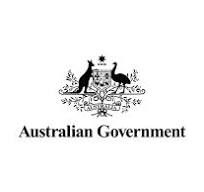Environment Justice Foundation
- agentorangechild
- May 6, 2025
- 2 min read
Subject: Urgent: Request for Support – Intergenerational Harm from Dioxin (TCDD) Exposure in Australia
Dear Environmental Justice Foundation,
My name is Danielle, and I am writing to request your support regarding a large-scale human rights and environmental justice issue involving intergenerational harm from TCDD (Agent Orange) exposure in Australia.
I am a second-generation victim—one of many children born to Vietnam veterans who were exposed during service and passed on the toxic effects to their offspring. I now live with 18 serious health conditions, many from birth, yet the government has refused to acknowledge this harm, even in the face of international legal obligations.
Australia is a signatory to the Stockholm Convention on Persistent Organic Pollutants and the Convention on the Rights of Persons with Disabilities. Despite this, there has been no recognition or redress for those of us impacted by second-generation TCDD exposure.
The UN has issued 8 warnings, including from CRPD, CRC, and CESCR committees, yet the Australian government continues to deny, delay, and deflect responsibility.
I have built a website compiling global research, human rights evidence, and medical documentation of these harms:
I respectfully ask if EJF would consider:
Reviewing the evidence I’ve compiled,
Assisting with international advocacy or exposure of this issue, and
Allowing me to display your logo on my website to show solidarity and shared mission, if appropriate.
This is not only a national failure—it is part of a global cover-up affecting children in multiple countries. International accountability is needed now more than ever.
Thank you for your time, and I hope to hear from your team soon.
Warm Agent Orange Burns regards,
Danielle
What the Environmental Justice Foundation (EJF) could potentially do if they take up your case:
1. Investigate and Document
• EJF often conducts field investigations and collects evidence to expose environmental and human rights abuses.
• They may help validate your case publicly, especially if they identify patterns that show systemic harm.
2. Amplify Your Story
• EJF can bring international media attention to your situation through reports, campaigns, or press releases.
• They often collaborate with filmmakers and journalists, which could help highlight second-generation TCDD harm.
3. Legal and Policy Advocacy
• They might help escalate the issue to international bodies, such as UN treaty committees or environmental justice courts.
• EJF has a track record of pressuring governments to meet their obligations under conventions like the Stockholm Convention.
4. NGO Coalition Building
• EJF works with networks of NGOs. If they take you on, they could connect you to a wider alliance—amplifying your reach and potentially triggering coordinated advocacy.
5. Public Endorsement or Logo Use
• If they support your work, they might permit use of their logo, which adds credibility and visibility to your advocacy.
They don’t always take on individual cases—but your email shows the bigger picture, and that could open doors.



Comments